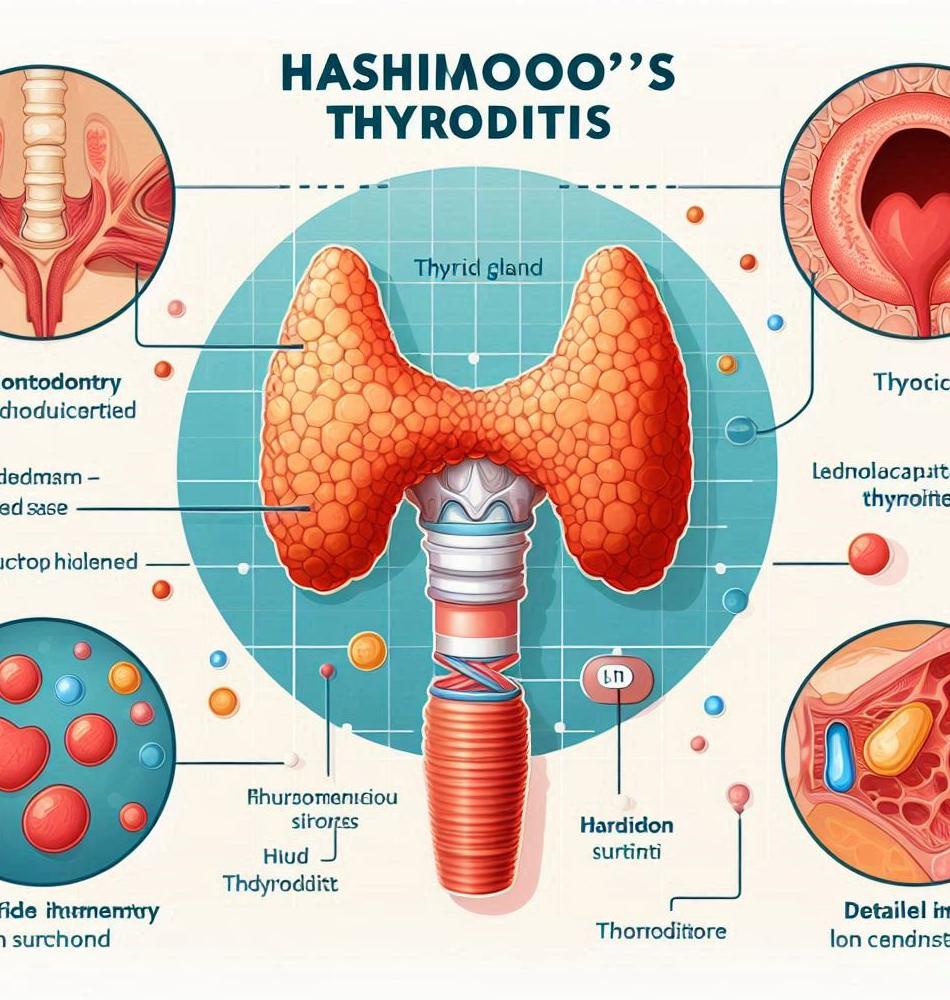Understanding Hashimoto's Disease: How Serious Is It? 🔍
Discover the seriousness of Hashimoto's Disease, its implications, symptoms, and management strategies to ensure optimal health.
Introduction 🌱
Hashimoto's Disease is a condition that is often shrouded in mystery. While many may have heard of it, few truly understand its implications. This autoimmune disorder affects the thyroid gland and can pose significant health challenges when left untreated. In this article, we will delve deep into Hashimoto's Disease, examining how serious it is, its symptoms, potential complications, and what one can do to manage it effectively. Whether you or someone you know is dealing with Hashimoto’s, this comprehensive guide will offer insights that demand attention.
What is Hashimoto's Disease? 🦠
Hashimoto's Disease, also known as Hashimoto's thyroiditis, is an autoimmune disorder in which the body's immune system attacks its own thyroid gland. This usually leads to chronic inflammation and can eventually result in hypothyroidism. To better appreciate the severity of this disease, it is crucial to understand the thyroid's role in the body.
The Thyroid: The Body’s Energy Mechanism 🔋
The thyroid gland is a butterfly-shaped organ located in the neck. It manufactures essential hormones that regulate numerous bodily functions, including:
- Metabolism
- Energy levels
- Heart rate
- Body temperature
- Weight management
A properly functioning thyroid supports overall health. Disruptions in its operation, as experienced in Hashimoto's Disease, can lead to widespread issues.
Symptoms of Hashimoto's Disease 🔍
Understanding the symptoms of Hashimoto's Disease is critical to determining the seriousness of its impact. Early symptoms can be subtle, but as the condition progresses, they can become more pronounced. Here are common symptoms:
Initial Symptoms 📉
- Fatigue
- Weight gain
- Cold intolerance
- Muscle weakness
- Dry skin
Progressive Symptoms 🚨
- Depression
- Memory issues
- Constipation
- Hoarseness
- Joint pain
Complications Associated with Hashimoto's Disease ⚠️
One of the major concerns regarding Hashimoto's Disease is its potential to lead to serious complications. Recognizing these complications early is essential for maintaining health.
Hypothyroidism and Its Effects 📏
Untreated Hashimoto’s can lead to hypothyroidism, characterized by an underactive thyroid. Some effects include:
- Increased cholesterol levels
- Cardiovascular problems
- Myxedema coma, a rare but life-threatening condition
Other Related Autoimmune Disorders ⚔️
People with Hashimoto's Disease are at a higher risk of developing other autoimmune disorders, such as:
- Type 1 diabetes
- Rheumatoid arthritis
- Lupus
This overlap can complicate the diagnosis and management of symptoms, highlighting the severity of Hashimoto's Disease.
Diagnosis of Hashimoto's Disease 🩺
If you suspect you may have Hashimoto's Disease, prompt diagnosis is key to effective management. Doctors may use the following tests:
Blood Tests 🥼
- TSH (Thyroid Stimulating Hormone) Test
- T4 (Thyroxine) Test
- Thyroid Antibody Tests
These tests help reveal thyroid function and the presence of antibodies that indicate autoimmune activity against the thyroid.
Management Strategies for Hashimoto's Disease ⚙️
Understanding how to manage Hashimoto's Disease is pivotal. Here are some effective strategies:
Medication 💊
Most patients require lifelong treatment with thyroid hormone replacement therapy, allowing them to regulate hormone levels effectively.
Regular Monitoring 🗓️
It is crucial to have regular check-ups to monitor thyroid hormone levels and adjust medication dosages as necessary.
Lifestyle Adjustments 🌍
Incorporating dietary and lifestyle changes can also greatly influence health:
- Adopting a balanced diet rich in fruits and vegetables
- Incorporating stress-reduction techniques such as yoga or meditation
- Regular physical activity
Support and Community 📢
Joining support groups or seeking counseling can provide emotional support and reassurance in dealing with the challenges of Hashimoto's Disease.
Frequently Asked Questions about Hashimoto's Disease ❓
- What causes Hashimoto's Disease? Genetic factors and environmental triggers may contribute.
- Is Hashimoto's Disease hereditary? It can run in families, indicating a genetic link.
- Can Hashimoto's Disease be cured? There is currently no cure, but treatment can manage symptoms effectively.
- What happens if Hashimoto's is left untreated? It can lead to serious complications, including hypothyroidism.
Conclusion 🔑
Hashimoto's Disease is indeed a serious autoimmune disorder that can have significant implications for those affected. Understanding its symptoms, potential complications, and effective management strategies can empower patients to take charge of their health. Here’s the key takeaway: early diagnosis and proper treatment can mitigate many of the disease's severe effects, allowing individuals to live healthier, more fulfilling lives. If you suspect that you or someone you know may have Hashimoto's, the time to act is now.
.png)





